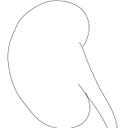Nephrology Journal Club on Twitter
The whats, whys and whens explained
Introduction
The Journal Club has a long tradition and a hallowed space in the training of physicians (Did you know that William Osler organized one of the first Journal Clubs at McGill University in 1875). It is the teaching session where trainees and teachers exchange roles. Journal Club is the area where the flipped classroom has been fully implemented in medical education. Read and study the article at home, and then use classroom time to critically debate the methods, results and interpretation of the article.
This makes journal club a natural fit for social media. Social media is built around decreasing barriers to communication. It is designed to connect people of like interests. A number of groups have used social media for journal clubs, from blogs to Facebook to Twitter. Our surgical brethren in Urology have been very successful with their twitter journal club, @iurojc. NephJC will attempt to use the nephrology twitter community to generate a healthy discussion and critical review of the nephrology literature.
Why
One of the most common questions I get when I try to explain Twitter to physicians is “Why should I use that?”
There are a number of rewards to medical social media but they are often difficult to communicate to someone who has no orientation to the landscape. It’s like trying to describe a sunset to a blind man. A journal club, since it is a rite of passage for all doctors, will be an understandable point of reference for new users.
Additionally, the explosion of journals makes it more and more difficult to keep up with the medical research. We need ways to help manage this bounty.
Lastly, it seems to be the perfect time for nephrology — other social media projects such as #DreamRCT #NephMadness and Renal Fellow Network’s Top Nephrology Stories of 2013 have been well received. There is a critical mass of nephrons tweeting, and a wider network of connected internists, emergency physicians, cardiologists, urologists and even the occasional electrophysiologist!
Logistics
When?
The first-ever nephrology journal club on twitter is planned for Tuesday April 29th at 9 PM Eastern; subsequent journal clubs will happen twice a month. Look for a post on Medium announcing the the inaugeral Journal Club article to be posted in a day or so. This will be a brief introduction to the article including a bit of commentary on why we think it is important.
We are currently sprucing up NephJC.com to be the permanent home for the journal club.
After that post goes up, we will look to twitter to and comments to come up with topics and questions to be discussed during the live chat. Make sure you include the hashtag #NephJC, to ensure we see all of the commentary.
The live chat will be an hour long discussion on Twitter. We are hoping to include the authors in as many of these chats as possible. A summary of the conversation will be storify’d and later in the week, a final blog post will be posted. We will also write a brief comment for PubMed Commons, linking to the transcript and summary blog post, so that readers who chance upon the abstract on PubMed will be able to share in our efforts.
How do you take part?
Read the article and tweet away — making sure you use the #NephJC hashtag. No need to limit yourself to the hour of live tweeting, we will be looking at all of the tagged tweets. Questions, comments, perspective, everything is fair game.
How do we choose an article?
The article for the first journal club is chosen, but we need suggestions for future ones. Please tweet your suggestions using the hashtag #NephJC; preferably provide a link. Any article related to nephrology is fair game. Our hope is that when the annual review of the literature lecture happens at Kidney Week, NephJC particiapants will have seen them all!
Who are we?
Joel Topf (@kidney_boy) and Swapnil Hiremath (@hswapnil) have gotten the ball rolling but the journal club belongs to the community and belongs to everyone who contributes. To be successful, we need participation from the community, and anyone who contributes has some ownership of this project.
